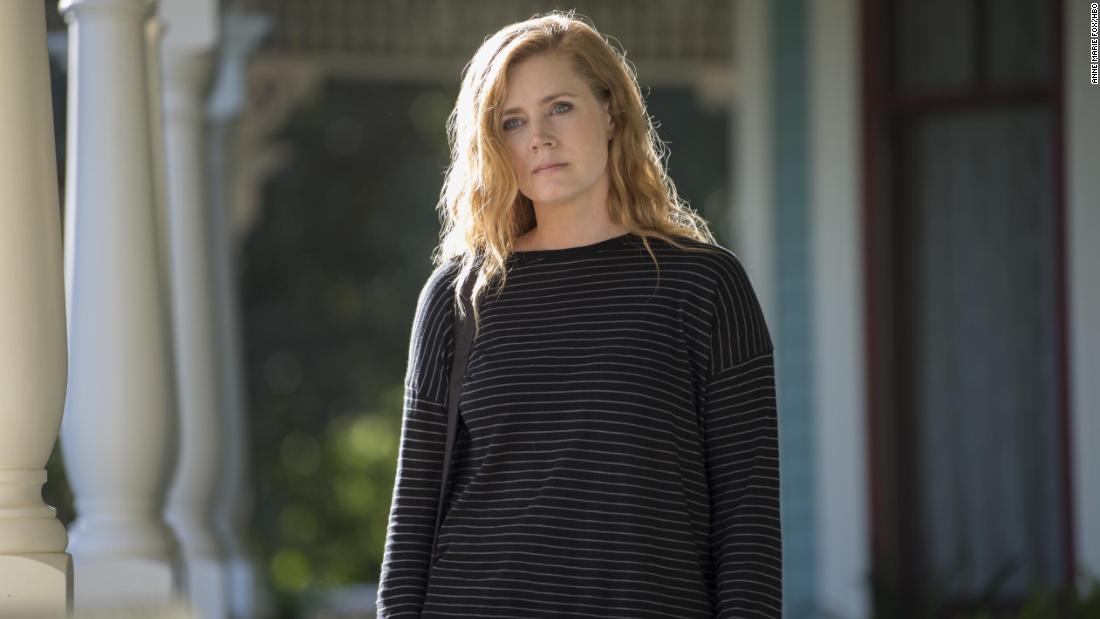
In hindsight, "Sharp Objects" became the equivalent of "True Detective 2" -- the considerably less captivating follow-up to a high-profile HBO limited series, testing the appeal of star power and ability of creative talent to produce an encore worthy of the original.
In the first case, the overwhelmed party was "Detective" writer Nic Pizzolatto. With "Sharp Objects" -- which wrapped up its run Sunday night -- it's director Jean-Marc Vallee, who, after his work on Emmy darling "Big Little Lies," again crafted an eight-episode series oozing with atmosphere, but which in this package yielded much less satisfying results.
On "Sharp Objects," Vallee essentially recycled cinematic devices like gauzy, quick-cut flashbacks, coupling that with Amy Adams' showy turn in the central role and the draw of Gillian Flynn's novel.
As Camille Preaker, a reporter whose professional behavior can charitably be described as highly questionable, Adams clearly threw herself into her portrayal of a woman bearing scars, both emotionally and physically, from her troubled childhood.
Yet the real star of "Sharp Objects," in many respects, was Patricia Clarkson as Camille's secret-hiding mother, Adora, described by the local sheriff as someone who "loves her attention, then scolds you if you give her too much."
In many ways, "Sharp Objects" played like a throwback to Southern gothic horror, with a pinch of "A Streetcar Named Desire" and a whole lot of "What Ever Happened to Baby Jane?" That was particularly evident in the finale, which revealed that Adora has Munchausen syndrome by proxy (MSP), an illness in which a caretaker keeps those in his or her care sick.
The creepiness of Adora's condition included the complicity of her husband (Henry Czerny), allowing her to poison Camille while trying to keep authorities at bay, as Sinatra tunes crooned in the background.
Still, the shocks didn't end there, although the finishing twist -- like much of the series -- was a little too cryptic, and needlessly rushed. After being rescued, Camille discovered that the sins of the mother had, in a sense, been visited upon the daughter -- with Camille making a discover that exposed her half-sister Amma (Eliza Scanlen) as a murderer, echoing Flynn's novel.
As unsettling as that moment was, neither it nor the rest of the final episode were enough to redeem a project that too often felt like a pallid imitation of those aforementioned influences, one too muddled to be consistently compelling.
Give Vallee and writer/producer Marti Noxon their due. The tone they created on "Sharp Objects" was almost hypnotic, and the core mystery just tantalizing enough to pull audiences (perhaps especially those unfamiliar with the book) along to the bitter end.
Still, for all the show's dream-like qualities, the elusive chemistry that made "Big Little Lies" so compelling (thanks in no small part to writer David E. Kelley's contribution) hasn't been replicated here.
HBO has enjoyed a strong track record with limited series, from "True Detective" to "The Night Of" to "Big Little Lies." Compared to those titles, "Sharp Objects" looks considerably smaller than the objects in the network's rear-view mirror.
No comments:
Post a Comment